Officials believe riverfront liquor license expansion will boost South Bend development
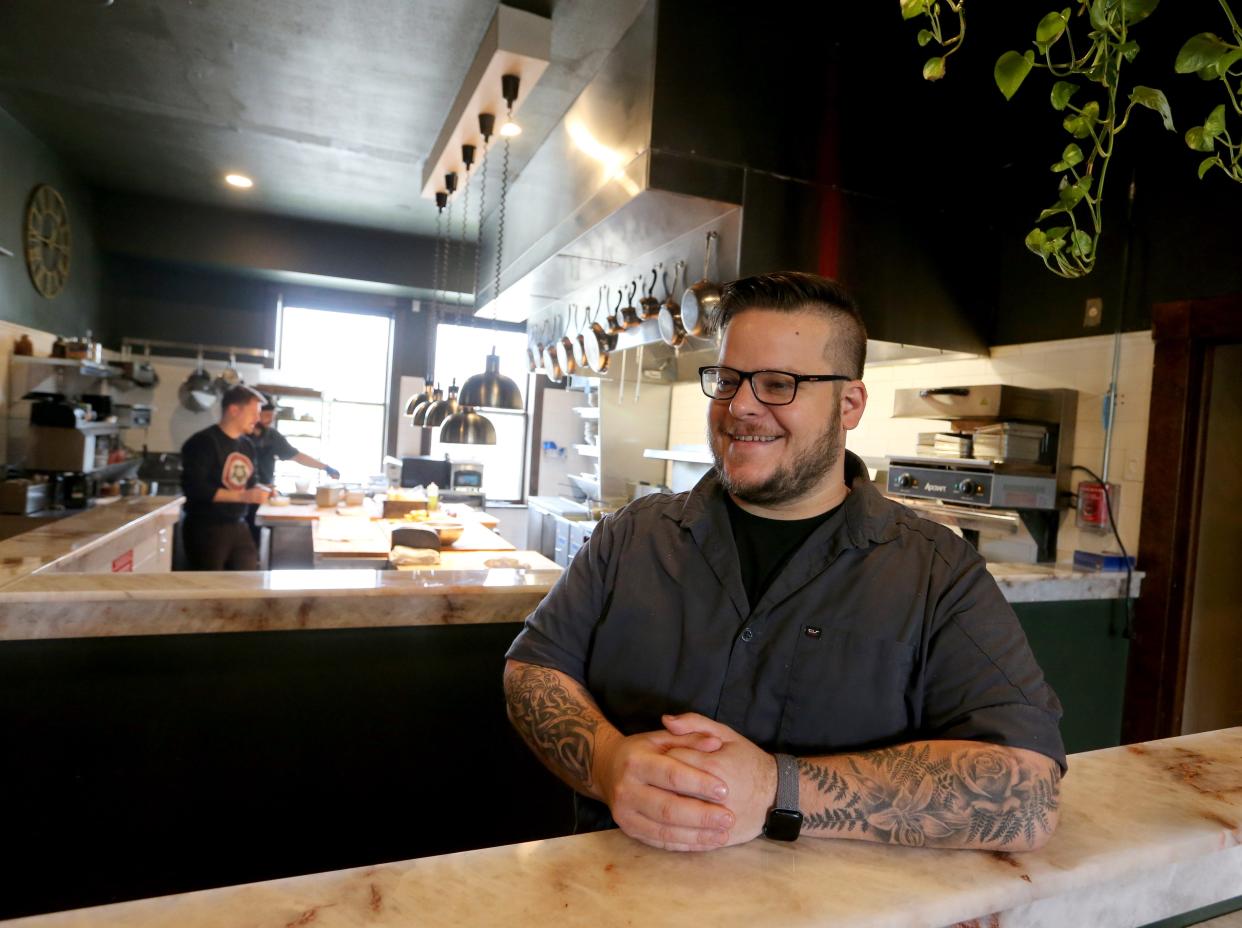
SOUTH BEND ― The city expects a significant boost in its economic development efforts in the coming months when its riverfront licensing district doubles its reach from the St. Joseph River, ultimately lowering the price barriers for those interested in opening restaurants and other venues.
Enabled by state law, South Bend has allowed affordably-priced liquor licenses since 2012 for businesses offering food and alcoholic beverages or a unique cultural enhancement while also giving existing restaurants a boost with the addition of alcoholic beverages on their menus. The licenses cost $2,000.
Eamonn McParland, owner of Roselily restaurant on the southern edge of downtown, was among the trio of young entrepreneurs who opened Render at 521 E. Jefferson Blvd. in July 2016, three years before the opening of the reimagined Howard Park.
More: Challenges forced South Bend's Render to close, but it proved something along the way
“We sought out a spot in the district,” he said. “We didn’t have the extra money in our budget for a three-way license.”
Though Render closed earlier this summer when it proved to be too much for the only remaining partner, the restaurant proved there was a market for more upscale dining experiences no matter where they were located.
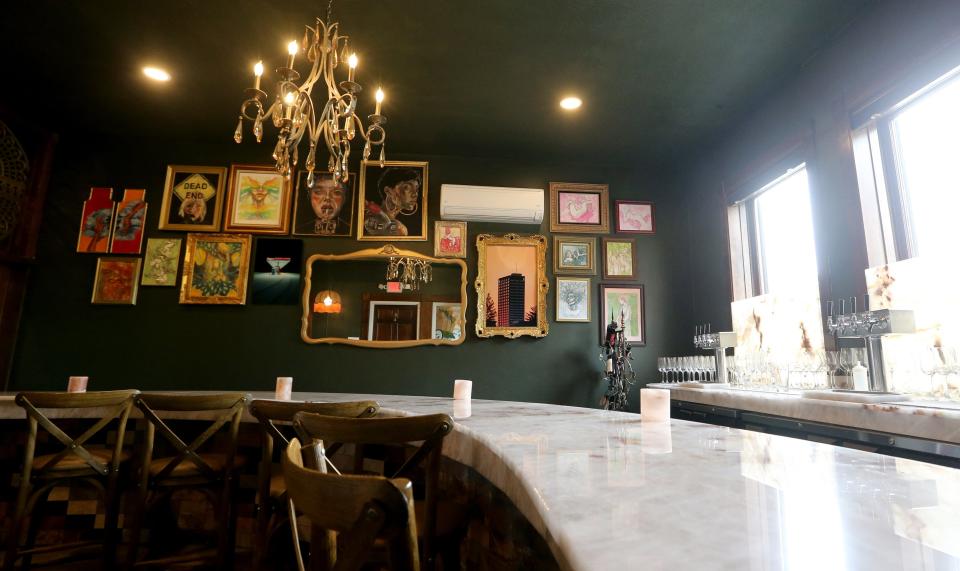
But McParland said those customers also expect to pair food offerings with wine and cocktails, for example, so it was important to have the three-way license at Render, especially because real estate prices are higher downtown.
Now, McParland hopes to expand his business at Roselily, which he opened in 2022 at 701 S. Main St., with the special three-way license that should become available in the coming weeks as the city approves final details on an expansion of the district from 1,500 feet to 3,000 feet from the river.
Courtney Kubly, director of business development for Downtown South Bend Inc., expects to almost immediately receive more than a dozen applications for the permits, which cost $2,000 a year for a three-way liquor license compared to the initial outlay of $70,000 or more for a standard three-way license.
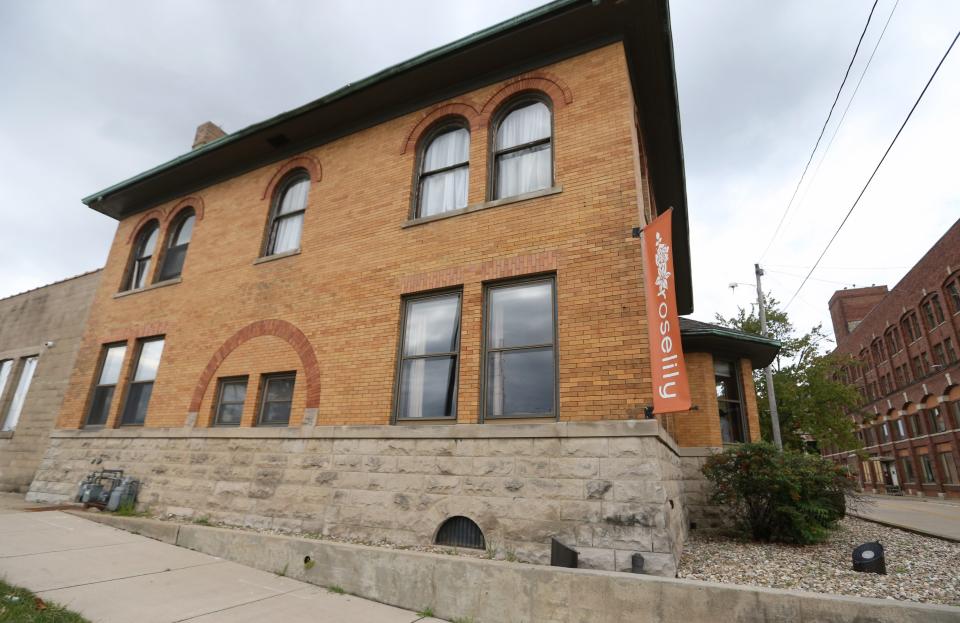
“I’ve already got my application ready to go,” McParland said. Currently operating with only a wine and beer license, he explained that the addition of spirits will allow him to offer cocktails, bourbon and other drinks to customers.
And he believes the addition will ultimately allow him to take over the 2,100 square feet on the second floor of his restaurant, which across from the former Studebaker Administration Building in the city’s Renaissance District.
Spurring future growth
He’s not alone. Mike LaCarrubba, owner of L Street Kitchen at 131 S. Lafayette Blvd., said the three-way license would allow his restaurant across from the County-City Building to expand into the evening hours, offering affordable fare for those living or visiting downtown.
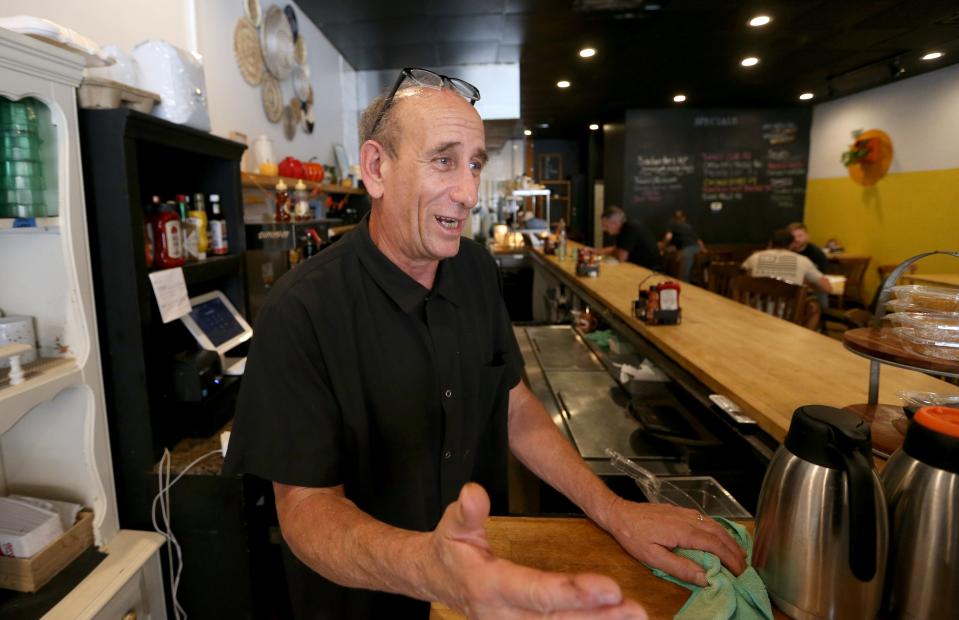
The ability to offer customers beer, wine or mixed beverages would justify the necessary staff expansion, LaCarrubba explained. “Our customers are the average working person,” he added, pointing out that the current 1,500-foot demarcation line ends just outside his restaurant.
Although the previous riverfront zone mostly helped businesses in the core of downtown and the East Bank neighborhood, the expansion will reach areas north and south of the city center such as the River Park neighborhood.
Franky’s Tacos at 2720 E. Mishawaka Ave., for example, could affordably add margaritas and other mixed drinks to its menu. Others in the area also are interested in taking advantage of the zone expansion to grow their businesses or open new venues, Kubly said, adding that her phone at DTSB has been ringing off the hook in recent weeks.
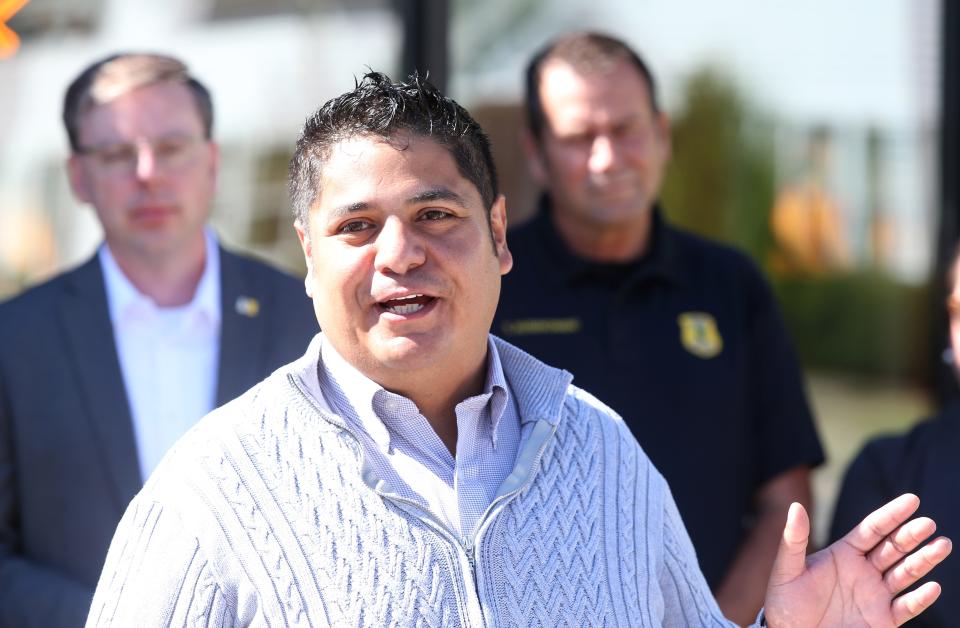
“There are businesses ready to go,” Kubly said. “Suddenly, buildings that were empty or minimally used are in play.”
One prospective business is interested in opening a venue with golf instruction and simulators that would be even more appealing if patrons were also able to grab a beer and perhaps a sandwich with friends.
For that prospective business, it’s still a matter of finding the right location, but observers believe the zone expansion could ultimately encourage new restaurants and other venues to take some vacant space, especially because office growth has been stymied since the pandemic and the surge in hybrid work.
“We’re expecting it to create vibrancy in neighborhoods,” said Erik Glavich, South Bend’s director of growth and opportunity. “By expanding access to this resource, we’re providing another tool for sustainable growth.”
Beyond the immediate downtown, the zone expansion will provide opportunities for projects such as the revitalization of the former Ward Baking Co. building in the 900-block of Portage Avenue into a business, arts and cultural hub north of downtown, among others.
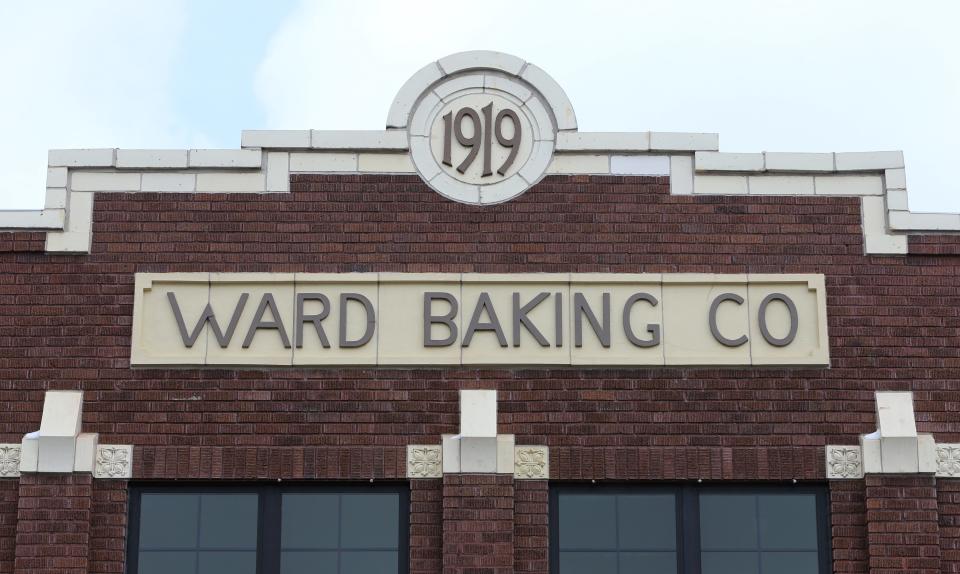
Glavich said the city has been considering an expansion of the zone for some time but wanted to also update the rules governing the licenses. “We wanted to tighten the language so it’s clear these licenses are for businesses that provide dining or a cultural enhancement,” he explained.
A jazz club or a concert venue would be eligible for such a license, but not a place that simply serves pitchers of beer to college students, Glavich said, adding that prospective locations have to have the correct zoning and will be subject to annual review to ensure they're abiding by the standards.
Past benefits
There are currently 32 riverfront licenses in the city, but officials believe that could easily double with the expansion to 3,000 feet in both directions of the city. Don’t necessarily expect to see a massive influx of new bars either.
PEGGS, a longtime breakfast and lunch spot at 127 S. Michigan St. in downtown, took advantage of the reasonably priced riverfront license to enhance the breakfast and lunch experience for its customers by offering Bloody Marys, Mimosas and a small assortment of beers and wines.
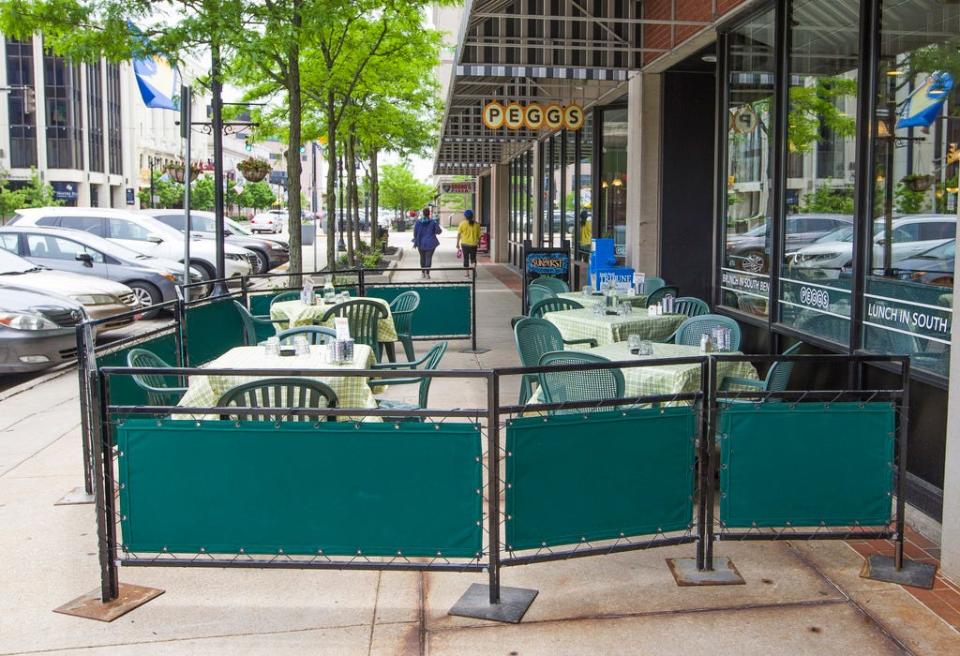
After getting its start in South Bend at the collaborative Dainty Maid building at 231 S. Michigan St., Mike and Jennifer Stone looked for their own spot for Early Bird Eatery inside the riverfront zone before picking a former restaurant location beneath a parking deck at 117 E. Wayne St.
“This space was vacant for seven years,” Jennifer said. “We didn’t have the money to pay $100,000 or more for a three-way license and also take on a remodeling project.”
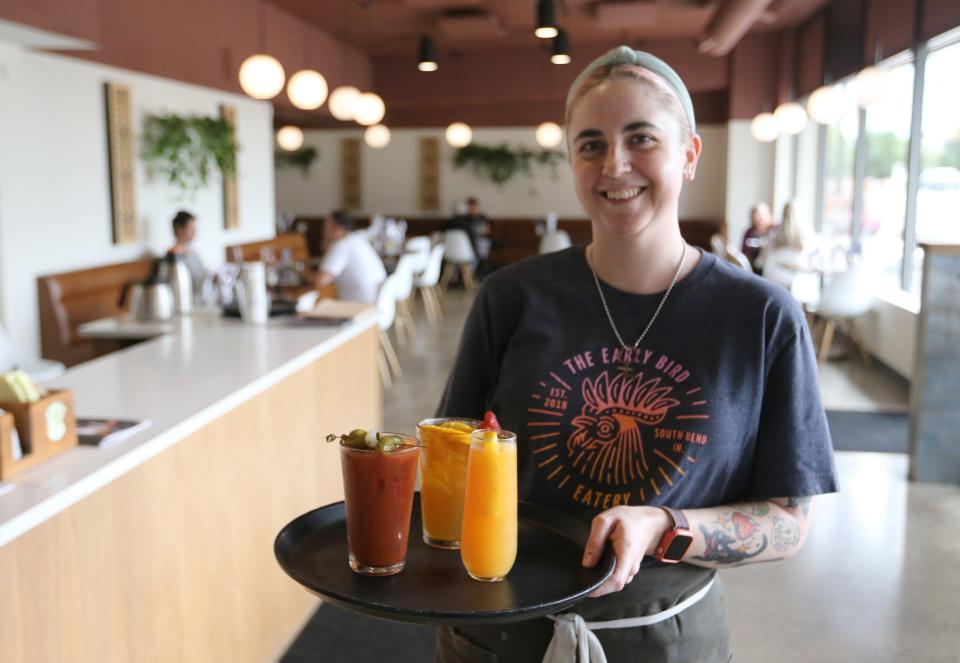
At Early Bird, the license is mostly an added bonus for customers because the breakfast and lunch spot is able to offer Mimosas, Bloody Marys, Hot Toddys and other drinks for its customers, depending on the season.
“The drinks are especially popular on football weekends when people are grabbing a bite to eat before heading out to the game or when there’s a convention in town,” Jennifer said. “People don’t come here specifically to drink.”
But having the license also means the Stones would like to eventually expand their hours into the evenings to get even more traffic into the restaurant. “The more people we get downtown, the better it is for every business,” Jennifer said of the riverfront zone expansion.
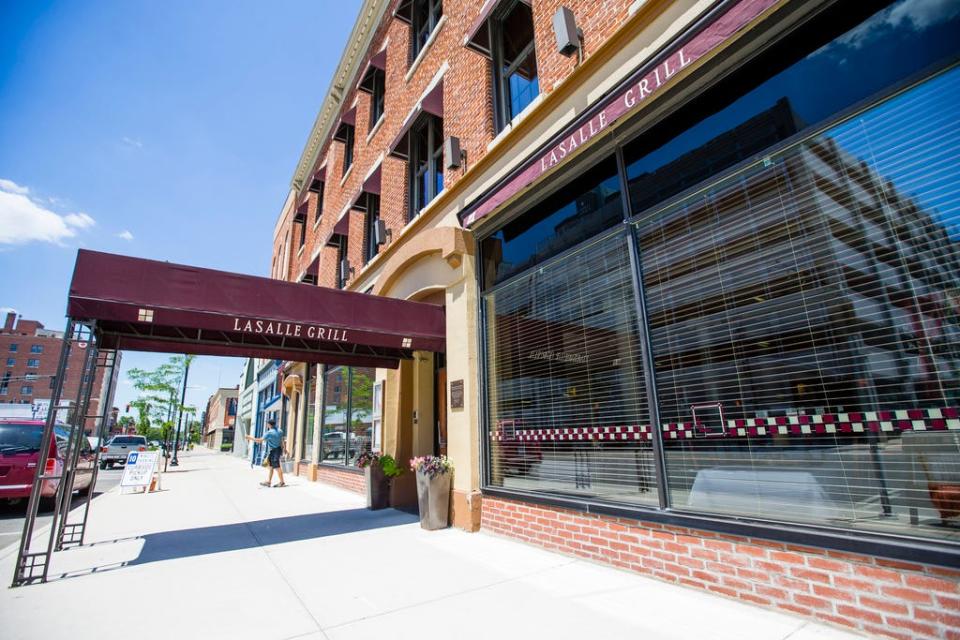
That’s the same view offered by Mark McDonnell, founder of LaSalle Hospitality Group, which has been a mainstay in downtown at 115 W. Colfax Ave. for more than 30 years. Board president of Downtown South Bend — the nonprofit advocating for downtown — and a founder of other organizations promoting downtown dining, he believes that everyone benefits when there are more people downtown.
Though the license at LaSalle Grill predates the lower barrier options that are now available, he views his license as more of a long-term investment that also allows him to provide alcoholic beverages at catered events outside the restaurant while it continues to appreciate in value.
“It lowers a barrier for small business owners, those who have the dream,” McDonnell said.
DTSB administers the applications for the riverfront licenses and will also be charged with ensuring that establishments can show that a significant portion of their sales come from food or provide a benefit that enhances the culture of its surroundings.
“These aren’t going to go to cigar bars, adult entertainment or student bars,” Kubly said, adding that the new ordinance also aims to create clearer standards that are enforceable through inspections and an annual review process. “We expect to get a lot of inquiries, but there will be some folks who will not be eligible.”
The goal is to enhance the city through the licenses, not create havoc or problems.
“We’re excited about the expansion as it brings in corridors or blocks that are prime for investment,” Glavich said. “Hopefully, this becomes an incentive for additional development.”
Email Tribune staff writer Ed Semmler at esemmler@sbtinfo.com.
This article originally appeared on South Bend Tribune: Businesses ready to pounce on South Bend's expanded river licenses

